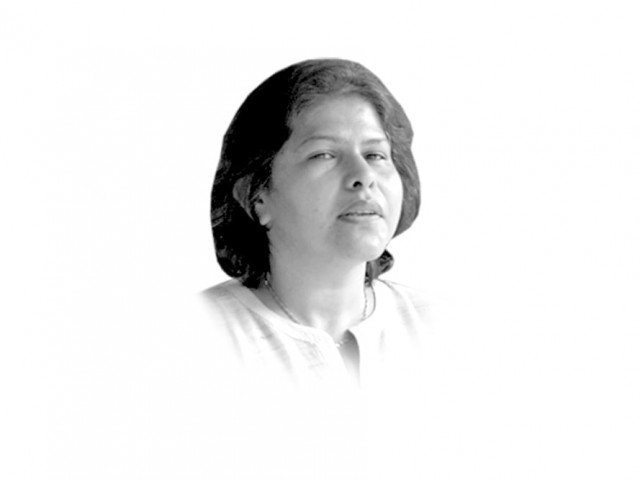Non-state actors and the state
Riaz is non-state actor for Pakistan for tasks such as cleaning political mess, to taking care of critical problems.

Non-state actors and the state
Malik Riaz can be best described as one of the many non-state actors that the Pakistani state is in a habit of partnering with. Be it Malik Riaz, Sipha-e-Sahaba, Jaish-e-Mohammad, Lashkar-e-Taiba and others, these non-state actors have acquired greater nuisance value due to their linkage with the state, which they then in turn use and show off for enhancing their power even further. In all cases, these non-state actors develop such nuisance value that they begin to feel bigger than the state and try to capture parts of it, which ultimately results in greater collision or collusion.
While we may all get very upset with how the real estate tycoon has compromised the credibility of an important state institution, the fact is that he is a product of state patronage. Riaz’s journey from an ordinary clerk to a tycoon was made possible due to state actors who built the real estate magnate for their personal benefits. It was a reciprocal and mutually beneficial relationship in which the state actors used Riaz’s service for multiple tasks ranging from personal gratification, to cleaning up some of the political mess and taking care of some of the state’s critical problems.
In the first instance, Malik Riaz’s expertise as a land developer were used by the Bahria Foundation during the mid-1990s to develop two housing schemes in Lahore and Rawalpindi. The agreement allowed Riaz to use Bahria’s name and navy’s insignia to develop and market these schemes in which the Foundation had a 10 per cent share in partnership and 25 per cent share in total plots. There was also a provision for Riaz to buy out the Foundation’s share for Rs 100,000 per plot. Reportedly, Malik Riaz was also arrested during 1997-98 as the navy and the ISI conducted two inquiries into the alleged scam. Former naval chief Admiral (retd) Fasih Bokhari — and now head of NAB — claims that nothing adverse was found against Riaz during the two investigations.
However, despite what is claimed as a positive report, the Bahria Foundation ended the relationship in 2000 and sued the tycoon for continuing to use Bahria’s name and insignia for his housing scheme. The Supreme Court in 2001 disregarded this plea and allowed Riaz to use Bahria’s name on the grounds that since he had made heavy investment, which would be jeopardised if the name and insignia were removed, Riaz should be allowed to use the same. In 2006, Riaz’s Bahria Town, which had by then changed its insignia, entered into a partnership with the DHA with the intent for ‘seamless integration’ between the two entities. The question at this stage is not how it was made possible but who made it possible since Malik Riaz’s Bahria was in a habit of procuring services of senior military men. He would advertise in newspapers asking for retired senior military officers to apply for work in Bahria Town. Over the years, Riaz got on board a lot of military personnel including former ISPR head Maj-Gen. (retd) Shaukat Sultan. The tycoon was also known to provide plots in Bahria to senior police officials, media personnel, and other people. He also did favours for politicians. Over the years, Riaz provided job and financial security for many senior government functionaries. Since there is no free lunch, these perks had a price tag. To quote Malik Riaz, “everyone has a price and I pay it so my work doesn’t stop”.
As mentioned earlier, the state used him for bigger issues as well such as paying off certain people on its behalf to buy their silence. For instance, Riaz was used to console an angry Maulana Abdul Aziz and his wife Umme Hassan. He spent Rs 15 million to rebuild Lal Masjid and provide sanctuary to Madrassa Hafsa and the maulana’s family. Allegedly, Riaz was also asked to ‘take care of AQ Khan’.
There is always the possibility that he is still being used by the state. But then it is high time for the state to realise that subcontracting state functions and the state running to the non-state will always have tragic consequences.
Published In The Express Tribune, June 15th, 2012.













COMMENTS
Comments are moderated and generally will be posted if they are on-topic and not abusive.
For more information, please see our Comments FAQ